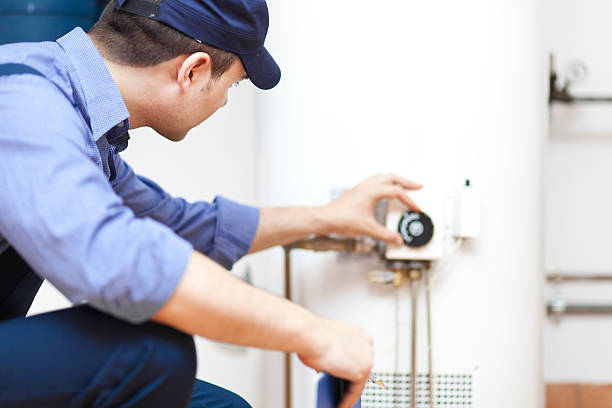
How to make your boiler last longer?
Turning on the boilers helps you with heating and hot water, when required, especially during the winter months. But when its the time to pay a hefty amount for a new boiler purchase, nobody really likes it.
However, as it's for any other appliances, boilers also don't last forever. The average life expectancy of a boiler can be around 15-20 years. At times, that can also go down to even 8 to 9 years.
It all depends on the kind of usage and maintenance it had received throughout its life. And what after that? It's that huge expense and hassle, waiting for you to get the new one installed.
You can be one of the lucky ones if your boiler survives effectively for a long. However, if you want to increase the life span of your boiler, here are certain tips that need to be followed. which have been shared below:
1. Service Your Boiler Every Year:
To know whether your boiler is all fine or not, you need to get it inspected by a qualified and certified gas engineer. Minor issues can occur anytime, and they can lead to a major one if left unchecked for a long. Servicing your boiler by a gas-safe registered engineer at least once a year can help you find out any such defects in your boiler, small or big. And once those issues are clarified,it can prevent future breakdowns. Even to get the benefits of your boiler warranty, you should get your boiler serviced by a gas-safe registered engineer. So annual boiler servicing is always recommended to maintain your boiler in good health and thereby increases its life expectancy.
2. Do not Idle Your Boiler in Summertime:
Though not for long, summertime in the UK lasts for four to five months. And that's the time you don't need heating. Now if you are giving your boilers a break, you are also reducing your fuel bills. But at the same time, this long-term dormancy can bring a lot of problems where the metals in the boiler can seize with also dirt and dust accumulating on its parts, thereby affecting its efficiency and longevity. So it's wise to get your boiler working at least for a few minutes every month during the summer. Doing this will make your boiler parts move smoothly, and you don't have to face a hard time while turning it on in autumn.
3. Insulate the Pipes:
To get your boilers to work effectively with no early breakdowns, insulating the pipes is one of the crucial steps. But it's not that complicated,where you need to call a professional. All you have to do is to purchase the lagging from a DIY store and get your pipes insulated by following any video tutorial. And this negligible expense will give you a return in many ways. As it will prevent any sudden boiler failures,it will also help you get reasonable heating bills and also increase the average life expectancy of your boiler.
4. Install a Magnetic Filter to your Boiler:
Sludge buildup in the boiler system is one of its biggest issues, causing cold radiators, strange boiler noises, and even boiler leakages. With time, as water flows through the boiler, rust from the inside pipes forms this sludge. Now if it gets ignored for a long, it can even lead to premature boiler breakdown. So as a very good precautionary measure, you can better install a magnetic filter on the returning pipework of your heating system. It will stop the sludge deposits from entering the boiler, making it more functional and also increasing its life span.
5. Add an Inhibitor to your heating system:
Water in your boiler system has got dissolved impurities in it. And, for sure, its' something that can harm your appliance, reducing its efficiency and longevity in long term. Adding an inhibitor to your boiler can be a wonderful idea to reduce the corrosion and limescale formation in the system. This chemical solution once added to your heating system will prevent the metal components in it to react with water and produce unwanted deposits, thereby making your boiler work efficiently for a long. Now, as it's for installing a filter. this is also something, you need the help of a heating engineer to do for you.
6. Bleed your Radiators:
For any reason or other, air can get inside your heating system. Mostly, if not excelled out, this air will find its way up into the radiators. And that will make your radiators cold at the top and hot at the bottom.Bleeding your radiators can get your boilers to work more effectively and prevent any such bigger issues for it in the coming future. It is a simple task which you can very well do by yourself.You just need to get a radiator key, then turn the bleed point of the radiator and wait till water spills out from it.
7. Power Flush your Central heating:
In a scenario, where you are using a heating system, that is inefficiently operating because of sludge, power flushing works the best. Mostly, its' best suggested for old boilers working in hard water areas for a long. And moreover, if you haven't taken the necessary measures to keep your heating system sludge-free, this is the right option for you. In this process, the power flushing machine gets attached to the system, where it flushes out the stubborn sludge in it, with the help of its high-pressure water and its strong cleansing agent. This way,you get your heating system thoroughly cleaned, and make it survive good for a long.
8. Keep the Surrounding Clean:
As for fire,it requires air to burn, it's the same as what works for your boiler. Now, keeping too many things around will not let the boiler get enough air to burn, give less efficient service and be more prone to breakdowns.
Applying these tips will hopefully help you enjoy an effectively working boiler for a long. But don't try to carry on with your boiler too long, if your system needs frequent repairs.Even if you find your boiler making strange noises,or having leakages everywhere,that can be a sign that you need to change your boiler. An experienced gas-safe registered engineer can be the best one to guide you, whether you will go for boiler repair or a new boiler installation. However, if you are looking for such assistance,please feel free to give us a call and hire a certified gas engineer in Essex.

